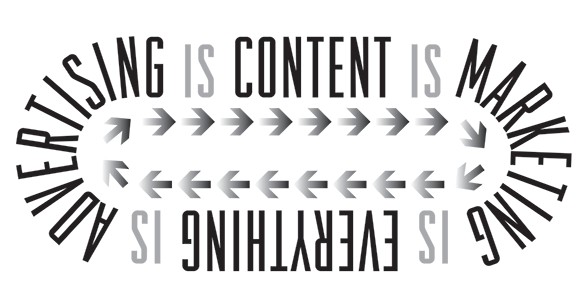Back in 1991, Regis McKenna, the top guy at Regis McKenna Inc. consulting and partner of Kleiner Perkins Caufield & Beyers venture capital, wrote “Marketing is Everything” in the Harvard Business Review. I remember reading it and using it as a basis for building my own company because it made so much sense, including:
- “Technology is transforming choice, and choice is transforming the marketplace.”[1]
- “New customers don’t know about the old rules, the old understandings, or the old ways of doing business – and they don’t care. What they do care about is a company that is willing to adapt its products or services to fit their strategies.”[2]
- “We are witnessing the obsolescence of advertising.”[3]
- “…advertising’s dirty little secret: it serves no useful purpose. In today’s market, advertising simply misses the fundamental point of marketing – adaptability, flexibility and responsiveness.”[4]
McKenna pointed out that the new marketing requires a feedback loop – something advertising’s “monologue” misses, but is built into the “dialogue of marketing.”
McKenna was ahead of his time. In fact, when you read that article today, you will be amazed at the uncanny truth that is still valid today in what he wrote. After all, consider just these three facts:
- Google was founded in 1998
- Facebook launched in 2004
- The first image was uploaded onto the web in 1992[5]
Yet, the fact of the matter is, we’re still a long way from that feedback loop McKenna talked about. Some say programmatic advertising provides it, but that’s an illusion. You rarely can tell who is clicking – or why – and when you factor in the fraud going on, you wonder why people still pour billions into advertising!
Technology has transformed choice, for sure. It’s flattened competition. In 1991, you knew who your competitors were – and how to fight them. Today, a competitor can come from out of nowhere. For example, recently at the Neocon show in Chicago where we had several clients, upon entering one’s booth, my client said, “Go down about 20 yards and look at so-and-so’s booth. Where did they come from?” That booth had a mirror-image of our client’s new product, only this client came out of England. I walked back to my client’s booth and whispered, “Looks like you got a leak in your organization.”
But, the fact is you can’t really hold a competitive advantage very long anymore because of the technology transforming McKenna talked about. Indeed, the reason our company is still standing is because we embrace technology, not run from it. Technology has given us an edge over the past decade to play at a level a company our size would only be able to imagine in 1991.
McKenna’s comment on advertising is being fulfilled with Native Advertising. In our blog, The Truth about Native Advertising, we spelled out the current thinking about “advertising.” Our conclusion was simple: “It’s not about the message, which is all advertising. It’s about the delivery mechanism. And who among us can control THAT, especially these days?”
The dirty little secret is that EVERYTHING is advertising, because advertising is content, and content is king. McKenna got everything right except that advertising serves no useful purpose. It has morphed into content, and content is the stuff sales are made of!
Thanks for reading. Let us hear from you!
______________________________________________________________________________
[1] Regis McKenna, Marketing is Everything, Harvard Business Review, January-February, 1991, p.65
[2] Ibid., p.66
[3] Ibid., p. 74
[4] Ibid., p. 75
[5] Martin Bryant, “20 years ago today, the World Wide Web opened to the public,” August 6, 2011, in The Next Web.

Brian from Broadbandsearch.net read our blog and noticed that we footnoted a link to thenextweb.com. He put together a very detailed article that might add to our post.
Here’s the link so you can give it a read: https://www.broadbandsearch.net/blog/who-invented-the-internet-full-history
There’s so much info out there about the internet and its history so Brian wanted to pull it all together and fact check everything. As it’s so in-depth, it’s had a great response from our readers already.
Thank you, Brian.